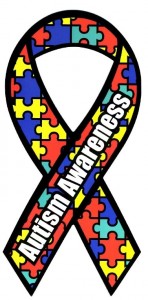 It’s morning in Nahariya, a tiny Israeli town near the Lebanese border, and 4-year-old Benjamin is repeatedly smashing his head against the wall. He spins wildly in circles, screeching at full volume. As his mother tries frantically to calm him, he pulls down his pants and defecates on the floor.
It’s morning in Nahariya, a tiny Israeli town near the Lebanese border, and 4-year-old Benjamin is repeatedly smashing his head against the wall. He spins wildly in circles, screeching at full volume. As his mother tries frantically to calm him, he pulls down his pants and defecates on the floor.
When they leave their apartment, Benjamin wrestles free of her hand and nearly runs into oncoming traffic. Sharon attempts a trip to the supermarket but leaves before she finishes shopping because her son is screaming while he picks up items and throws them to the floor.
That was in October 2016, and typical of most days at the time. Sharon, a single mother who moved to Israel from the United States one year earlier, was alone and losing control. Benjamin was taking Ritalin, a drug usually associated with attention deficit hyperactivity disorder (ADHD), which he did not have. He’d also tried the antipsychotic ziprasidone and a mix of antidepressants and anti-anxiety drugs. None of them helped, and he often became more hyperactive as they wore off.
All that changed a year ago, when Benjamin started taking marijuana. In the little apartment he shares with his mother, mornings are now relaxed and orderly. His transformation may signal the arrival of a long-awaited and desperately needed healing for the many others just like him: children living with severe autism.
Autism spectrum disorder affects about 1 percent of children around the world, with disproportionately high rates in developed countries. In the United States, the Centers for Disease Control and Prevention estimates that one in 68 children has been identified as having ASD, a wide-cast net of a diagnosis that encompasses several complex brain disorders that make communication and other interactions difficult. Children with milder “high-functioning” autism are often uninterested in making friends, feel uncomfortable when touched and have a hard time making eye contact or reading social cues. These individuals face challenges but can usually navigate building a life within their society.
But in cases of severe “low-functioning” autism like Benjamin’s, the symptoms are more pronounced and often violent. Children engage in repetitive and sometimes harmful behaviors, like rocking and head-banging, and are hypersensitive to sound and light, with exposure often triggering tantrum-like meltdowns. They can’t sleep. They have rages. Some of these children never learn to speak, or they reach their teen years uttering only a few words.
ASD has no cure, and most children’s symptoms are treated with medications approved for depression, anxiety or ADHD. As was the case with Benjamin, these drugs often cause their own set of obsessive behaviors and insomnia, along with weight gain. For many children with severe autism, the drugs help for just a few hours; once they wear off, symptoms like hyperactivity become even more extreme.
CONTINUE READING
(Is Cannabis the Best Treatment for Autism? – Weed Finder News | Article Credit: Newsweek)
